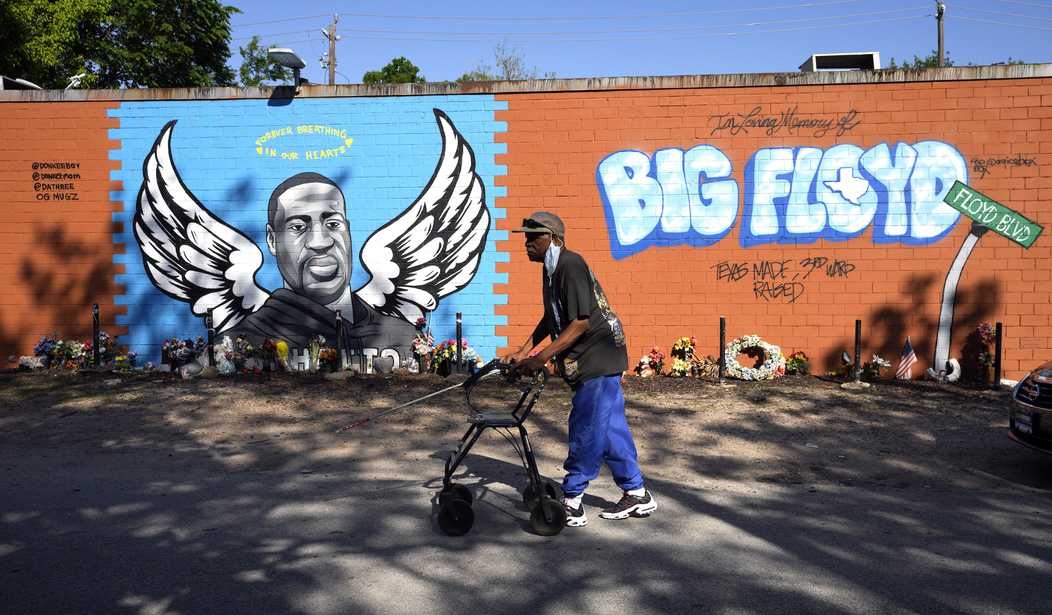Has the era of canonization for George Floyd come to an end? It apparently has in Texas, where the man whose homicide at the hands of police in Minneapolis touched off riots across the country. The state Board of Pardons has reversed a decision to pardon Floyd for an earlier drug conviction:
The Texas Board of Pardons and Paroles has reversed its decision to grant George Floyd a posthumous pardon for a 2004 drug conviction, according to a letter obtained by CNN.
The about-face on Wednesday comes nearly a year after the board voted unanimously to recommend the pardon and more than two years after Floyd was killed by a former Minneapolis officer.
The board did not cite a reason for its decision in the letter, which was sent Thursday to the Harris County public defender working on behalf of Floyd’s surviving family members.
“After a full and careful review of the application and other information filed with the application, a majority of the Board decided not to recommend a Full Pardon and/or Pardon for Innocence,” the letter states.
The ostensible predicate for the pardon application was alleged police misconduct in Floyd’s drug case in 2004. The arresting office has been indicted in an unrelated case of felony murder and tampering, and the attorney for the Harris County Public Defender’s office claims that the Floyd case suggested misconduct as well. Then-officer Gerald Goines arrested Floyd but didn’t arrest a second suspect involved in the potential sale of crack, which makes it look like a set-up — or so the PD argues.
At first, the Texas board agreed, or at least ostensibly agreed. It’s almost certain that they didn’t actually care much about the argument from the PD, but rather wanted to make sure they looked politically woke. Either way — whether they have changed their minds on the case itself or not — the politics certainly have changed. Setting up a pardon for a dead man was an easy way for some cheap virtue-signaling at a time when politicians were worried about being painted as racists for not enthusiastically supporting Floyd’s secular canonization.
With crime rates skyrocketing and police recruitment falling, though, the politics have changed around cheap virtue-signaling. Now it looks more costly to undermine the law enforcement personnel who remain, especially in a case where a pardon doesn’t make much sense anyway. Nine months ago, the board signaled that it had begun to recalculate this when it withdrew its initial clemency recommendation along with two dozen others, and now its signaling reset is complete.
That doesn’t lessen the injustice of Floyd’s death. However, it also doesn’t overlook the fact that Floyd was no saint either. There’s no need to paint him as one to get accountability for his death, just as there’s no need to remove accountability for the choices he made in life, especially through a pardon that would be entirely performative at this point anyway.








Join the conversation as a VIP Member